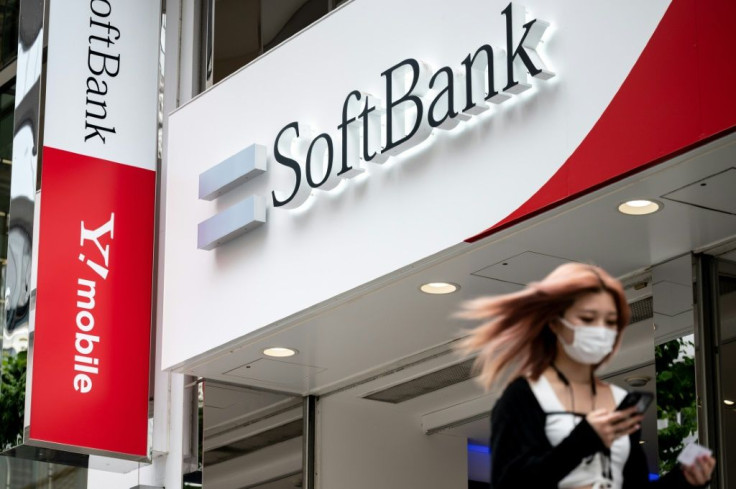Japan's SoftBank Group 'Cautious' On China Investments
Japan's SoftBank Group will take a cautious approach to investments in China where it is facing "tough challenges", founder Masayoshi Son said Tuesday, as the company posted a drop in first-quarter net profit.
SoftBank Group has poured money into some of the tech world's biggest names and hottest new ventures, from AI to biotech, through its $100-billion Vision Fund.
It reported Japan's biggest ever annual net profit in 2020-21, driven by tech-share rallies as people moved their lives online during the coronavirus pandemic.
A huge income boost was also provided by the April 2020 merger of US telecoms operators Sprint -- which was controlled by SoftBank Group -- and T-Mobile.
Net profit fell 39 percent in the three months to June to 761.5 billion yen, from 1.26 trillion yen in the same period last year.
"It is a significant drop in profit, but if we deduct Sprint and T-Mobile-linked temporary income from both years, the results were not that bad," Son told reporters.
The telecoms firm-turned-investment giant's total gain on investments came to 1.26 trillion yen in the first quarter, a year-on-year increase of around 28 percent.
Investment gains were led by Chinese ride-sharing giant Didi Chuxing and US food delivery app DoorDash, and were partially offset by losses including in South Korean e-commerce giant Coupang.
In early July, after Didi went ahead with a contentious New York IPO, Beijing announced a probe into the firm citing cybersecurity concerns and ordered its app be removed from stores.
Analysts said it was too early to see an impact of the crackdown on results, but Son said SoftBank Group was facing "tough challenges when it comes to investment in China".
"We want to be cautious", he said. "New regulations, new rules are being implemented, so until it gets settled we want to wait and see. In one year or two, it will be clearer."

In 2019-20, SoftBank reported a net loss of 961.6 billion yen -- its worst ever -- as the start of the pandemic compounded woes caused by its investment in troubled office-sharing start-up WeWork.
But it quickly returned to profit as the impact of Covid-19 lockdowns worked largely in its favour.
SoftBank's investment approach means large transactions can cause unpredictable fluctuations in its results, said Mariko Semetko, senior credit officer at Moody's Japan.
"Last year's record high follows the previous year's record loss, and signifies the highly volatile nature of the company's business," she told AFP.
Unlike in the previous quarter, SoftBank Group did not list big names Facebook, Microsoft, Alphabet or Netflix in its portfolio of holdings, although it did list Amazon.
This does not necessarily mean the company has sold off its holdings in the US firms, although it could signal a reduction in the number of shares held.
Given SoftBank Group's broad portfolio, "it comes as no surprise if they decide to monetise one part of the portfolio to invest into other assets with greater potential returns," said Justin Tang, an analyst at United First Partners.
"It does not mean that they think there is a price bubble," he added.
As usual, SoftBank did not issue an annual forecast, with its business model increasingly dependent on often volatile stock market activity.
© Copyright AFP 2024. All rights reserved.





















